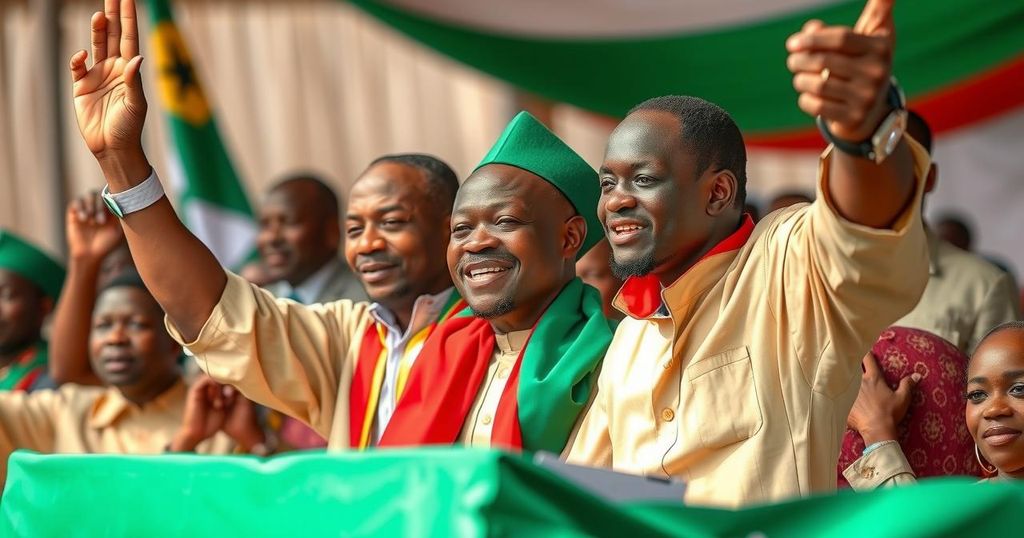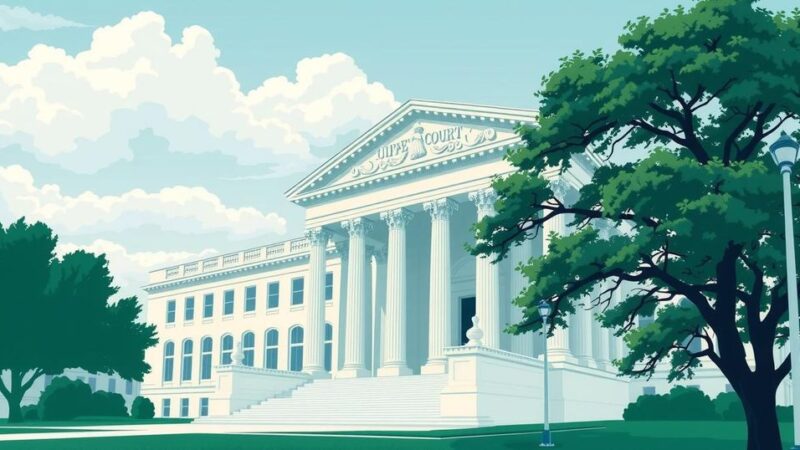Chad’s ruling Patriotic Salvation Movement won a majority in the parliamentary elections, which were boycotted by major opposition parties. With a turnout of 51.5%, the PSM acquired 124 seats out of 188, marking the first parliamentary election in ten years. The election’s boycott and criticisms of its credibility highlight ongoing political tensions in Chad.
In a significant political development, Chad’s ruling party, the Patriotic Salvation Movement (PSM), secured a commanding majority in the parliamentary elections held last month. The elections, which represented the first parliamentary voting in over a decade, witnessed a controversial boycott by the main opposition parties, who criticized the electoral process as lacking credibility. Provisional results indicate that the PSM won 124 out of 188 seats with a voter turnout of 51.5%, as reported by the electoral commission head, Ahmed Bartchiret.
The recent elections included not only parliamentary contests but also regional and municipal voting, marking a pivotal phase in Chad’s transition towards democracy following the ascension of Mahamat Idriss Deby to power in 2021 after the death of his father, former president Idriss Deby Itno. Mahamat Deby previously declared the election a stepping stone towards decentralization, aiming for a distribution of power to local governments. In contrast, more than ten opposition parties, including the prominent Transformers party, abstained from participating, deeming the election a mere “charade” and voicing concerns about its legitimacy, reminiscent of last year’s disputed presidential vote, which had been similarly criticized by observers.
The context of these elections is fraught with challenges as Chad faces serious security threats, notably from Boko Haram militants. The ongoing turbulence further complicates the country’s relationship with France, its longstanding ally, which has historically provided military assistance. The absence of opposition participation in the elections inherently calls into question the representativeness of the results and poses significant implications for Chad’s political landscape moving forward.
Chad has witnessed significant political turmoil and transformation in recent years, particularly following the death of former President Idriss Deby Itno in 2021. His son, Mahamat Idriss Deby, assumed power through a military junta, marking a major shift in governance. The elections were intended as part of a transition towards more democratic practices after a prolonged hiatus from parliamentary voting. Various opposition parties have expressed skepticism regarding the electoral integrity, highlighting underlying tensions in Chadian politics.
The recent parliamentary elections in Chad have resulted in a decisive victory for the ruling Patriotic Salvation Movement, despite a significant boycott by the opposition. This outcome aligns with President Mahamat Idriss Deby’s intentions to strengthen political control amidst ongoing security challenges. The absence of credible opposition raises critical questions regarding the legitimacy of the electoral process and the future of democracy in Chad.
Original Source: www.mymotherlode.com






